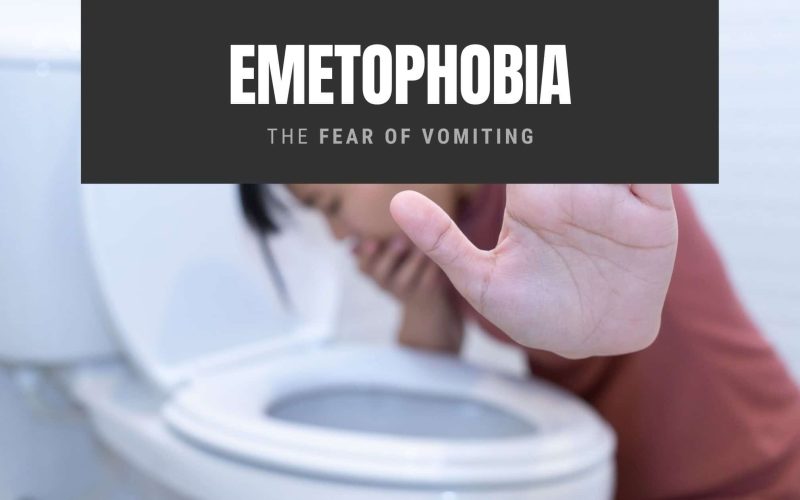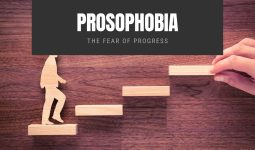Vomits are so irritating; everyone hates them! But did you know that people suffer from the fear of vomiting as an anxiety disorder? Emetophobia (fear of vomiting) affects 0.1% of the population, and since it is not a very common disorder, people can easily consider it normal.
This condition can be dangerous and, like other anxiety disorders, affect a person’s general well-being. Hence, it is worth learning.
This article discusses the fear of vomiting, its causes, diagnosis, treatment, and possible complications.
What is Emetophobia?
Emetophobia is an extreme fear of vomiting. This phobia makes you afraid of seeing other people vomiting, vomiting, or even feeling nauseous. If you have emetophobia, you will feel very anxious and engage in behaviors that influence your daily life.
Unlike most people who detest the idea of vomiting, an emetophobic is mostly intensely afraid of vomiting. They unconsciously clouded their minds with the imagination of people vomiting.
These thoughts can make them have distressful and depressing worries.
The distress, in turn, can restrict them from trying new recipes that would have amazingly graced their taste bud. It can also make them avoid traveling to new places or places that are pretty crowded, avoid people who are sick, and keep their health in check.
It is hard to keep up with this kind of limitation in cultural diversity. That is why people living with emetophobia face challenges in every area of their lives.
What Causes Emetophobia?
A negative or traumatic experience often causes phobias. These experiences make you feel nauseous or have an intense urge to throw up. An emetophobic is scared of sometimes their or others’ vomit.
An aversive or traumatic vomiting event, a nasty hangover, or severe gastrointestinal distress can also cause Emetophobia.
Other events that may cause or trigger emetophobia include:
- Getting extremely sick in public
- Traumatic food poisoning cause
- Seeing someone else throw up
- A bad experience of someone mistakenly vomiting on you
- Having a panic attack when you or another person vomits
- Environmental and genetic factors
Emetophobia may not even have a clear cause in some people. This makes experts believe that genetics could trigger it. This is primarily true for people with a family history of anxiety disorder.
The environment also plays a role in the fear of vomiting. For example, living in congested, unfit, and polluted areas.
Emetophobia as an expression of Obsessive-Compulsive Disorder (OCD)
People with obsessive-compulsive disorder (OCD) have recurring, unwanted ideas, thoughts, or sensations (obsessions) that push them to do something repetitively.
Although emetophobia and OCD are similar, they are two distinct anxiety disorders.
Though emetophobia symptoms vary from person to person, the most common symptom involves a minimal food intake, similar to avoidant/restrictive food intake disorder (ARFID).
People whose emetophobia is driven by OCD may see vomiting as a sign of something harmful and also underestimate their ability to deal with the act of vomiting itself.
OCD victims are very aware of how irrational their anxiety disorder is. However, most are helpless to appreciate a change.
What Causes Nausea and Stomach Discomfort?
Anxiety and food poisoning are mostly triggers of nausea and stomach discomfort. Nausea and digestive upsets people with emetophobia experience are common symptoms of anxiety and can lead to a post-traumatic cycle.
An emetophobic is afraid to vomit, and the fear causes nausea and stomach pain.
Diagnosis
To diagnose emetophobia formally, consult a psychologist or psychotherapist who will evaluate the symptoms experienced. The doctor will then consult the diagnostic criteria outlined in the fifth edition of the Diagnostic and Statistical Manual of Mental Disorders (DSM-5).
Treatment of Emetophobia
Emetophobia can be treated in the following ways:
- Exposure therapy
Exposure therapy is considered one of the most effective treatments for treating phobias. To treat emetophobia, the therapist exposes an emetophobic to new environments, food and culture, and outdoor sight of vomit to ensure that the intense and abnormal feeling of fear will be removed.
- Cognitive behavioral therapy (CBT)
Cognitive behavioral therapy is a type of therapy that helps you learn how to identify and challenge negative thoughts that cause distress. It is concerned with building the mind gradually while working with your therapist to address the anxiety and distress you experience and ways to cope with it and control it.
- Hypnotherapy
Hypnotherapy is another potent way of treating people with emetophobia. The therapist leads a patient into a relaxing, trance-like state during this procedure. When patients are relaxed, their subconscious is more receptive to new suggestions that eliminate their fear.
- Medication
Since emetophobia is not a common mental health condition, there’s no standardized medication for it. However, D-cycloserine (DCS) may have benefits when used during exposure therapy. A 2017 literature review trusted Source of 22 studies looking at people living with anxiety, OCD, or post-traumatic stress disorder (PTSD) found that DCS appeared to increase the effectiveness of exposure therapy.
Complications of Emetophobia
If you have emetophobia, you may have complications like other fears, phobias, or obsessions. The most common complication associated with emetophobia is the fear of food cibophobia.
Cibophobia involves constantly worrying whether your food was stored, prepared, or cooked correctly. In other words, you are terrified of getting sick from the food you consume (food poisoning).
This can make you severely limit what you eat until you are full to avoid nausea and vomiting. Cibophobia is a complication of emetophobia and can lead to malnourishment in an emetophobic.
Emetophobia and Anorexia
Anorexia is an eating disorder characterized by abnormally low body weight, an intense fear of gaining weight, and a distorted perception of importance.
People with anorexia are too concerned with controlling and regulating their weight. They use extreme efforts that significantly interfere with their lives, health, nutrients, and well-being. But what is the connection between anorexia and emetophobia?
Some individuals with emetophobia, particularly those who may already be susceptible to an eating disorder, may develop an abnormal relationship with food due to their phobia of vomiting.
Some people with emetophobia may also struggle with a fear of food or excessive worry that certain foods will cause them to be sick or vomit.
This can lead to restricting certain foods or whole food groups altogether, resulting in malnutrition and extreme weight loss.
While individuals with emetophobia may not be restricting intake as a means of weight loss, they can suffer from the same types of consequences as those who may be dealing with anorexia, such as cardiovascular complications.
Conclusion
Emetophobia influences the entire lives of its victims. The fear of vomiting can long-term affect your social and love lives, even academic and work performances. It can even impact your self-esteem and self-confidence, especially when out of control. Emetophobia can also deteriorate your life, as avoiding tasty delicacies can leave you malnourished. However, you treat emetophobia using the treatment measures listed above.





